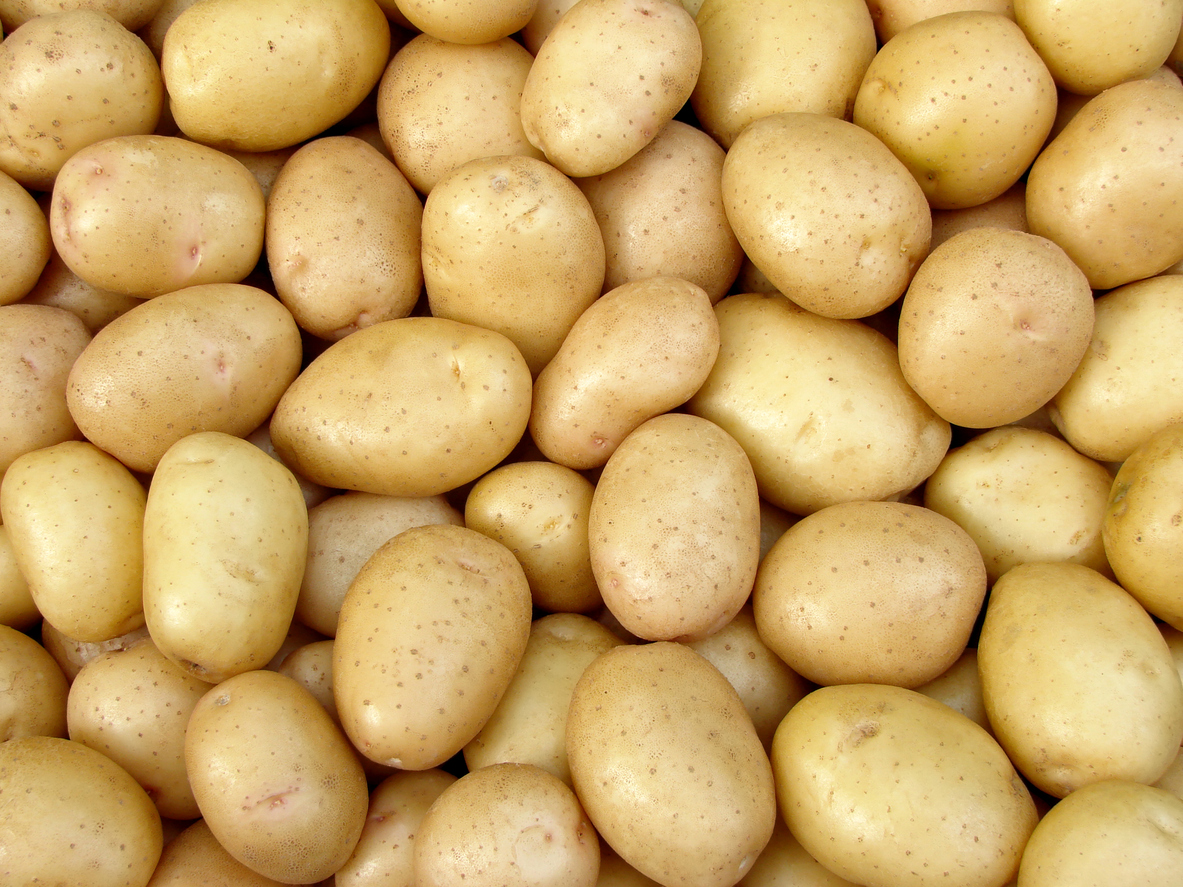
Study Reveals Narrow Genetic Basis of European Potato
April 23, 2025| |
Researchers from the Ludwig Maximilian University of Munich (LMU) and the Max Planck Institute for Plant Breeding Research, in collaboration with researchers from Wageningen University and Research conducted a study on the genetic basis of the European potato.
The researchers selected 10 heritage potato varieties, some of which were already being cultivated in the 18th century. According to Ronald Hutten, the curator of the Potato Pedigree Database, these varieties represent the ‘Founding Fathers' of modern potatoes and date from the first phase of European breeding programs.
A potato has four sets of chromosomes, and these 10 varieties could contain a maximum of 40 different sources or unique haplotypes. However, the researchers found that large regions of many chromosomes are identical and no more than nine different haplotypes. That covers 85 percent of the genetic variants found in modern European potatoes. Wageningen potato geneticists Ronald Hutten and Herman van Eck say they cannot explain this based on lineage data alone. Written sources on lineage only go back as far as 1820. So, the European potato has a very narrow genetic base, derived from a small number of plants originally introduced into Europe.
For more details, read the article in WUR News.
| |
You might also like:
- Super Pangenome of Potato Could Lead to the Next Super Potato
- Potato Genome Decoded by German Research Team
- Most Complete Potato Genome Sequence Published
Biotech Updates is a weekly newsletter of ISAAA, a not-for-profit organization. It is distributed for free to over 22,000 subscribers worldwide to inform them about the key developments in biosciences, especially in biotechnology. Your support will help us in our mission to feed the world with knowledge. You can help by donating as little as $10.
-
See more articles:
-
Plant
- Pangenome Reveals Genetic Diversity, Evolution, and Domestication of Rice
- Study Reveals Narrow Genetic Basis of European Potato
- CABBI Team Accelerates Plant Bioengineering Using Robotics Lab
- Experts Recommend Policy Strategies to Support Bt Cotton Adoption in India
- Late Blight Field Resistance in Potatoes With Genes from Wild Relative
-
Environment
- Long-term Study Shows GHG Emissions from Agricultural Soils
- Study Reveals How Bacteria Bypass Plant Defenses
- Researchers Develop Transgene-free Gene-edited Poplar Trees
-
Read the latest: - Biotech Updates (December 10, 2025)
- Gene Editing Supplement (December 17, 2025)
- Gene Drive Supplement (February 22, 2023)
-
Subscribe to BU: - Share
- Tweet

